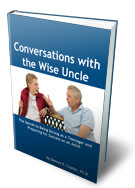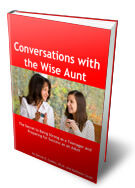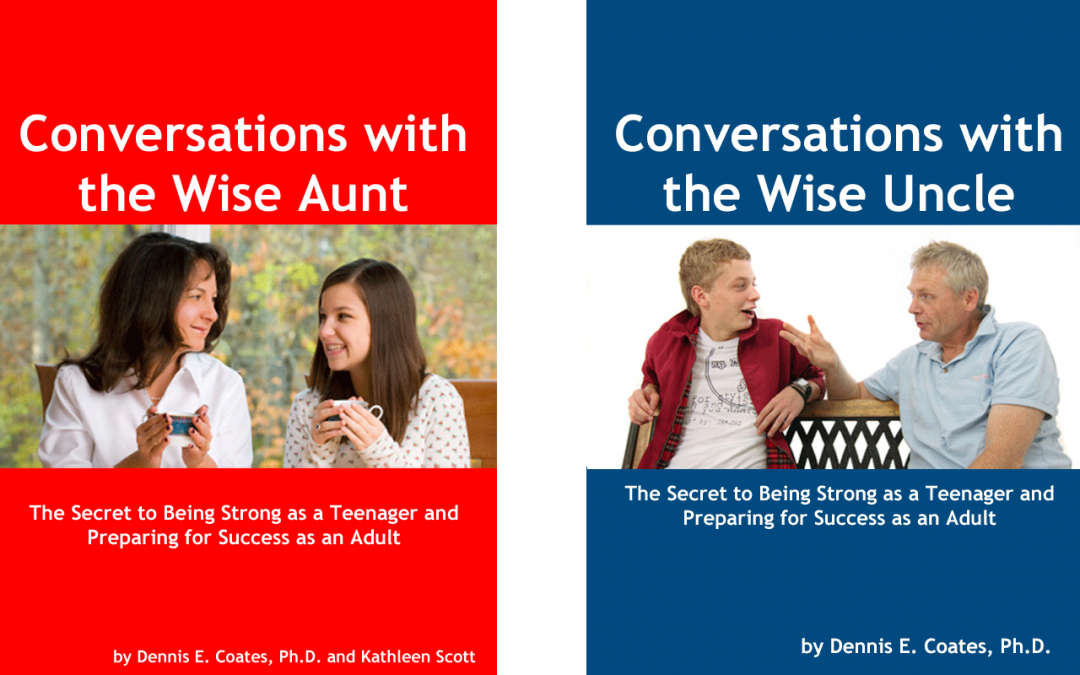For quite a while now, I’ve been involved in an anecdotal research project in which I interview adults about their experiences as teenagers. This effort has taught me a lot about what I call “the teen journey.”
One day while visiting one of my best friends, I asked him if he’d be willing to let me interview him for this project. He agreed, and as I listened to him he told me something remarkable. He said that when he was 12 his uncle took him out for breakfast. In addition to potatoes and eggs, they shared a long talk. His uncle was relaxed and fun to be with, not at all like his dad, who was stern, demanding and hard to talk to.
In a friendly, casual way, his uncle talked about what the boy could expect during his teen years. He described the physical changes that were about to happen to him as he matured into an adult. He talked about peer pressure, risk-taking behavior and the consequences of sex, drugs, and alcohol.
At the end of this four-hour conversation, his uncle said, “Now I want you to promise me something. When your friends want you to go along with them and something inside you doesn’t feel right, I want you to stop and think about what could happen. I want you to remember the things we talked about. Will you do that?”
My friend told me this talk with his uncle was the most important conversation of his life, that it helped him steer clear of all kinds of trouble during his teen years. Not that he was a perfect kid, whatever that is. But most of the time when he was tempted to do something he knew he shouldn’t, and usually it was something fun or exciting, he remembered what his uncle told him. He said having an uncle who leveled with him about the consequences of bad decisions was the luckiest thing that ever happened to him.
I’ve learned from this kind of research that many adults don’t feel comfortable talking to kids about these things. Why? Because there’s so much ground to cover, and they know they’re not experts on every topic. Besides, times have changed, and they remember their own teen years as a confusing time of life, a mixed bag of issues, anxiety and fun. So even caring adults may not have the confidence to say the right things. I’ve talked to quite a few people about their teen experiences, and my friend is the only person I’ve ever met who had anything like a “wise uncle” conversation.
It made me think of my own teen years. No one ever sat me down and explained things to me. My dad was always busy with work, and there were times he was away from home a lot. My mom had her hands full taking care of my younger brothers and sisters. During junior high and high school a few adults took an interest in me — a scoutmaster, a wrestling coach, an English teacher, and an elder in my church. Later in life I was lucky to have a few colleagues and bosses who gave me advice.
The problem was, I didn’t always get the coaching when I needed it, and there were huge gaps that I had to fill on my own. Some of this learning came from mistakes. I’m still learning, but it would have been great to have some of this wisdom when I was a teenager.
When I thought about my friend’s good fortune, I wished that every young boy could have the kind of “wise uncle” talk my friend had. A kid could avoid a lot of trouble and misery by hearing these insights at the right time. The long-term benefits would be enormous.
 So I wrote the book, Conversations with the Wise Uncle, to give young teen boys the kind of “heads-up” about the teen years that my friend got – and a lot more. It’s not one, but many conversations that took place between two fictional characters, Chris and his uncle, Ray.
So I wrote the book, Conversations with the Wise Uncle, to give young teen boys the kind of “heads-up” about the teen years that my friend got – and a lot more. It’s not one, but many conversations that took place between two fictional characters, Chris and his uncle, Ray.
 When the book was completed, I quickly realized I needed to write a similar book for young teen girls. So with the help of my wife, who is a writer and experienced mentor of young women, we wrote Conversations with the Wise Aunt, the fictional story of Trisha and her aunt Maria and the many talks they had during her teen years.
When the book was completed, I quickly realized I needed to write a similar book for young teen girls. So with the help of my wife, who is a writer and experienced mentor of young women, we wrote Conversations with the Wise Aunt, the fictional story of Trisha and her aunt Maria and the many talks they had during her teen years.
Adolescence is a young person’s chance to prepare for adult life. But not many teens take full advantage of this opportunity. Typically, it’s a confusing, emotional and perilous time of life. In most cases, both teens and their parents are ill-informed or unprepared to do all the right things. The consequences can be disastrous.
The books are a resource for parents and adult mentors of pre-teens and young teens. They can give parents ideas and confidence to have similar crucial conversations with their children. I wrote the books to be read by teens, and I encourage adults to give the book to their kids. The chapters make excellent start-points for discussions that can give teens the big picture about what they’re going through and help them use good judgment when faced with a myriad of tough issues.
I encourage caring adults who have teens in their lives to discover the books. Read them first, and then decide how and when to share them with the teen.
Conversations with the Wise Uncle
Conversations with the Wise Aunt
It’s my wish that in the future, more young people will benefit from conversations like these. That the bonds between parent and teen grow stronger, not weaker. And that in the end, a lot more teens grow into wiser, happier and more successful adults.
 More about this in my new book: How Your Teen Can Grow a Smarter Brain.
More about this in my new book: How Your Teen Can Grow a Smarter Brain.
You can grow the bond with your child through better listening. Download the FREE ebook, Listening to Understand.

